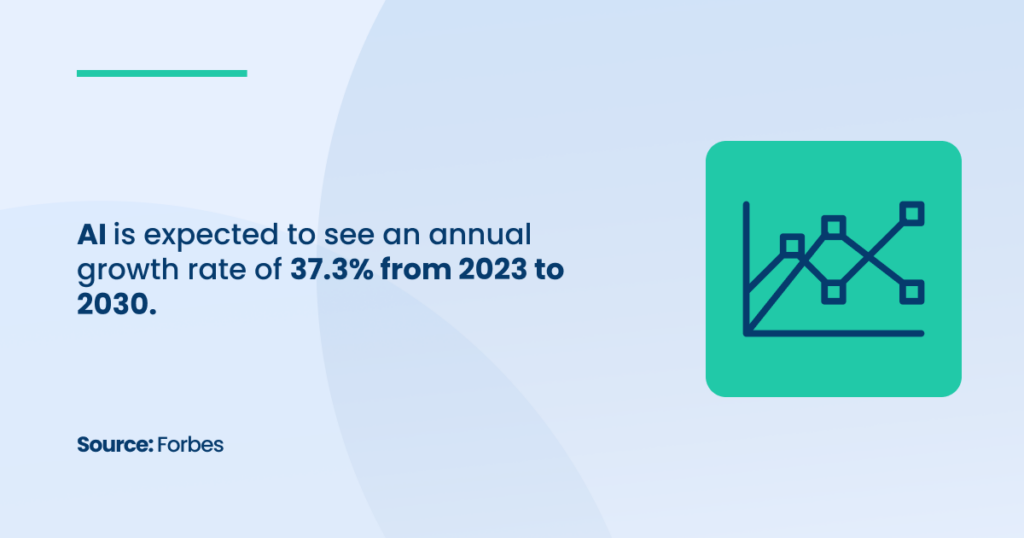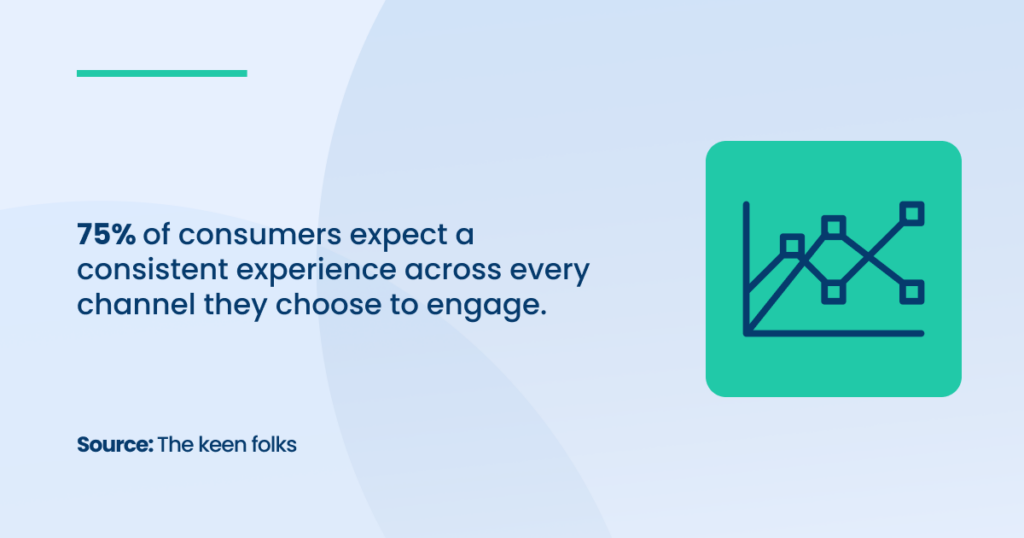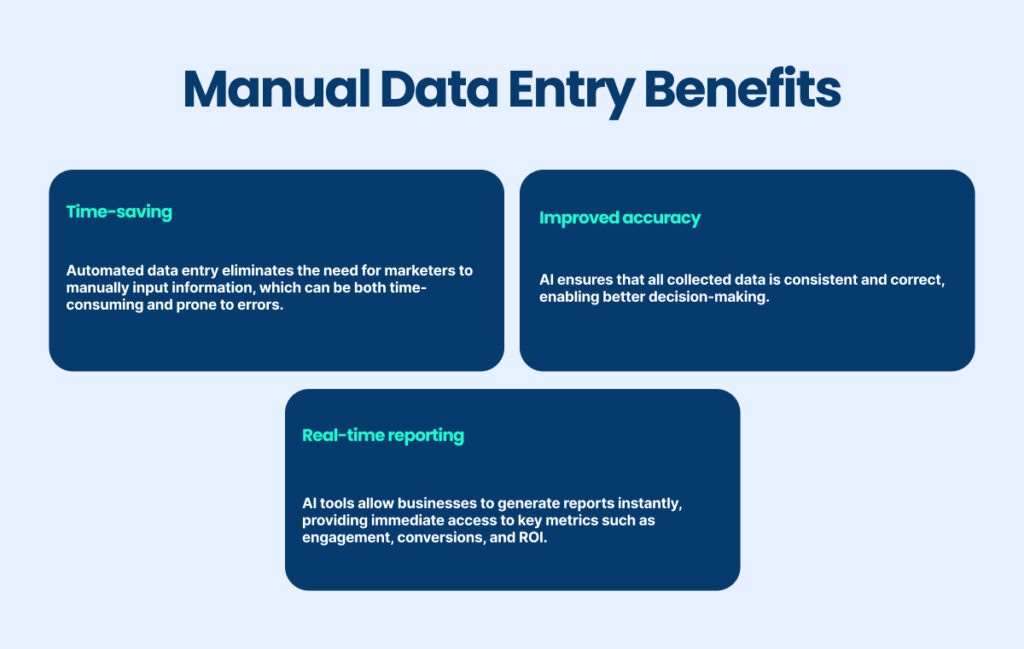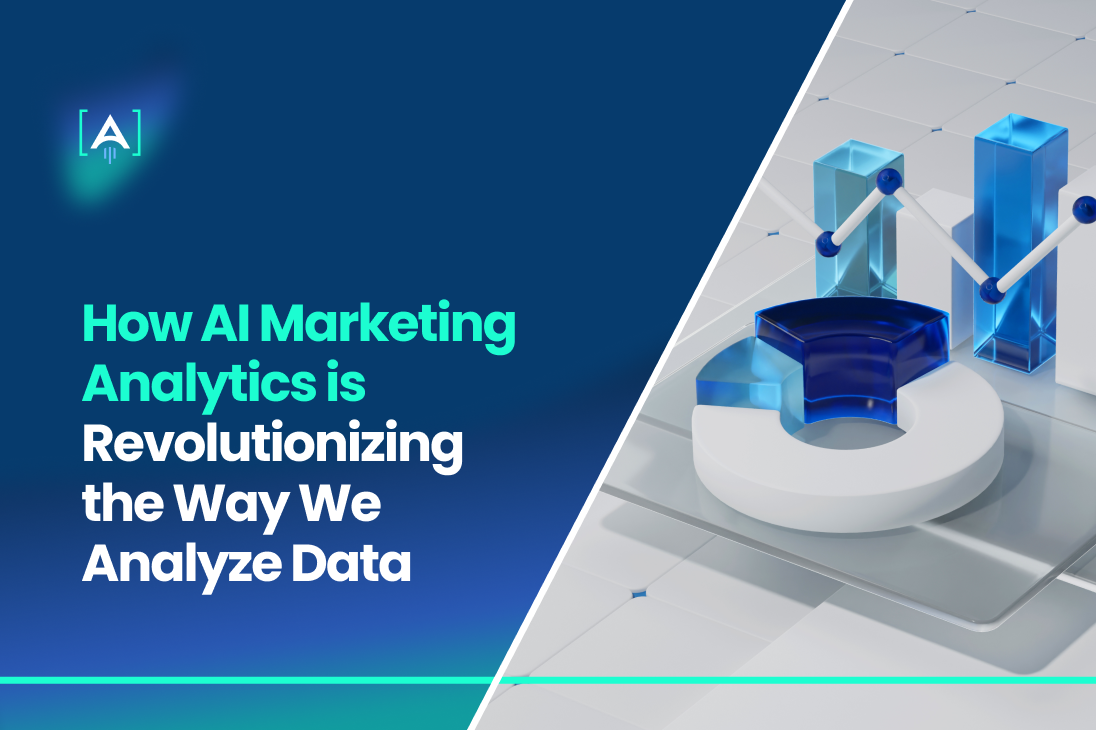Imagine a world where data isn’t just a pile of numbers.
No more guesswork, no more wasted ad spend.
Welcome to the age of AI in marketing analytics.
In this digital era, businesses are drowning in data. From website clicks to social media interactions, AI navigates the data ocean to uncover hidden insights.
The market for artificial intelligence grew beyond 184 billion U.S. dollars in 2024, a considerable jump of nearly 50 billion compared to 2023.
Source: Artificial intelligence (AI) market size worldwide from 2020 to 2030, Statista
Forbes states that AI will have an estimated 21% net increase in the United States GDP by 2030.
It’s clear that businesses leveraging AI through marketing agencies will gain a competitive advantage.
Indeed, a quality Marketing Analytics & Reporting Agency will assist you in the process.
The blog post will cover what AI Marketing Analytics is and how to revolutionize the analyzed data.
The Evolution of Data Analysis in Marketing
Data analysis in marketing has come a long way, transforming from manual processes that require significant time and effort to AI-driven solutions that can process vast amounts of data in seconds.
Source: Artificial Intelligence Market Size & Trends
As businesses continue to accumulate more data, there is a growing need for sophisticated tools that can manage and analyze this data to inform decision-making processes.
The introduction of AI in marketing analytics has completely revolutionized how companies understand their target audience, track campaign success, and refine their strategies.
This evolution has seen businesses shift from relying on historical data and basic metrics to harnessing advanced tools like natural language processing (NLP) and AI agent processes user data.
These innovations enable real-time decision-making and provide deeper insights into consumer behavior, resulting in more effective marketing strategies.
The Shift from Traditional Tools to AI-Powered Platforms
For decades, marketers have relied on traditional tools like spreadsheets and manual reports to analyze data, understand campaign performance, and make strategic adjustments.
However, as the volume of data has grown exponentially, these traditional tools have become inadequate. This has paved the way for the adoption of AI marketing analytics, which provides a more powerful, accurate, and efficient method of analyzing data.
AI-powered platforms allow for the collection and processing of vast amounts of data in real-time, from multiple sources such as social media, websites, and CRM systems.
Unlike traditional tools that require marketers to sift through data manually, AI platforms can automatically categorize and analyze this information, producing insights that are more accurate and actionable.
Businesses that utilize data analytics in business and integrate AI technologies into their workflows gain a competitive edge, as they can process data faster and respond to trends more quickly.
Moreover, AI-powered platforms can take advantage of utilizing natural language processing (NLP) to analyze text and voice data, enabling companies to improve their customer interactions.
For instance, voice search optimization has become critical as more consumers use voice-activated devices to search for products and services online. AI can interpret this data and deliver personalized content to match consumer needs.
Why AI is a Game-Changer for Marketers
AI’s ability to analyze large datasets in real-time is only one of the many reasons it’s revolutionizing marketing. While effective in the past, traditional data analysis methods are no match for AI’s capabilities.

AI in marketing analytics offers a range of features that were previously unavailable or difficult to implement at scale. For example, AI can predict customer behavior, optimize marketing campaigns in real-time, and even personalize messaging for individual users.
This is where marketing analytics services come into play. These services leverage AI to track and analyze marketing campaign metrics, providing businesses with a clearer understanding of what’s working and what needs adjustment.
From automating campaign data collection to analyzing consumer trends, AI provides deeper, actionable insights that enable marketers to make informed decisions quickly.
Key Benefits of AI-Driven Marketing Analytics
In today’s data-rich world, businesses have access to vast amounts of information that can transform their marketing strategies. However, without the proper tools, this data remains underutilized.
AI in marketing analytics is changing the game by enabling businesses to extract actionable insights from raw data quickly and efficiently.
From improving customer understanding to enabling real-time adjustments, AI marketing analytics offers unparalleled benefits that allow businesses to stay ahead of the competition.
Improved Customer Insights
One of the primary benefits of AI-driven marketing analytics is the ability to gain a deeper understanding of customer behavior.
Through data analytics, businesses can develop more effective strategies that cater to the specific needs and preferences of their target audience.
Understanding Consumer Behavior with AI
AI allows businesses to process vast amounts of customer data from various touchpoints, such as web marketing analytics, social media platforms, and customer interactions.
By using AI marketing analytics, companies can track marketing campaign metrics like engagement rates, customer feedback, and sentiment.

For instance, AI can perform processing for sentiment analysis, which helps businesses understand how customers feel about their brand, products, and services. This technology empowers businesses to be more customer-centric and agile in responding to evolving consumer needs.
Understanding consumer behavior with AI also helps marketers optimize their strategies across multiple channels.
For example, mobile marketing analytics can provide insights into customer interactions on mobile devices, while social media marketing analytics offers real-time insights into consumer behavior on social platforms. By combining these insights, marketers can develop a holistic view of customer behavior and adjust their strategies accordingly.
Personalization Through Data Segmentation
AI’s ability to facilitate customer segmentation with machine learning is a game-changer for personalized marketing.
Source: Campaign Monitor
AI-powered tools analyze marketing data insights to identify patterns and segment customers based on their behaviors, preferences, and purchasing habits.
This level of data segmentation allows businesses to create personalized marketing campaigns that resonate with individual customers, leading to higher engagement and conversion rates.
Personalization is a crucial component of modern marketing. With AI, businesses can automate the personalization process by delivering tailored messages, product recommendations, and targeted offers to specific customer segments.
This not only enhances the customer experience but also improves the effectiveness of marketing campaigns.
AI helps businesses with cross-sell and upsell opportunities by identifying products or services that complement a customer’s previous purchases.
The ability to personalize marketing efforts with AI marketing analytics directly impacts customer satisfaction and loyalty.
Real-Time Data Processing
In a fast-paced digital world, businesses need to make decisions quickly to stay competitive.
AI marketing analytics tools enable companies to collect and analyze data in real-time, providing immediate insights that allow for rapid adjustments to marketing strategies.
The Power of Immediate Analytics in Decision-Making
One of the most powerful features of AI-driven marketing analytics is the ability to analyze data in real time.
Traditional data analysis methods often involve delays, leaving businesses unable to respond quickly to market changes or consumer behavior.
However, AI-driven web marketing analytics and mobile marketing analytics provide instant insights into customer behavior, allowing businesses to make data-driven decisions on the fly.
Real-time data processing means businesses can optimize their campaigns while they are still running rather than waiting until after the campaign is complete to analyze the results.
This is especially important for influencer marketing analytics, where immediate adjustments can be made to capitalize on trending content and maximize engagement.
Moreover, AI marketing analytics tools can automatically adjust ad spend, optimize targeting, and improve creative elements in real-time to ensure campaigns deliver the highest possible ROI.
Predictive Analytics for Future Strategies
AI does not just provide insights into current campaigns—it also helps businesses anticipate future trends and customer needs.
Predictive analytics, powered by AI, enables companies to forecast demand, optimize inventory, and plan their marketing efforts more effectively.
Using AI to Anticipate Consumer Needs
AI’s predictive capabilities allow businesses to anticipate consumer needs before they even arise.
By analyzing historical data, AI marketing analytics solutions can predict customer behavior patterns and preferences. These insights help companies develop proactive strategies that align with upcoming customer expectations.
Source: Sci-tech-today
For instance, by analyzing past purchases, browsing habits, and customer interactions, AI can predict what products or services a customer might need in the future.
Businesses can use these predictions to send targeted offers or personalized recommendations, increasing the likelihood of conversion.
Customer segmentation with machine learning further enhances this process by enabling companies to predict which customer segments are most likely to respond to specific offers, allowing for more precise targeting.
Predictive analytics also improves the customer experience by enabling businesses to address potential issues before they escalate. For example, if AI detects a pattern of negative customer feedback, companies can take proactive measures to resolve the issue, preventing customer churn and enhancing brand loyalty.
How AI Tools Are Transforming Marketing Tactics
In today’s fast-evolving marketing landscape, the integration of AI in marketing analytics is reshaping how businesses strategize and execute their campaigns.
AI-powered tools are not only streamlining various marketing processes but also providing valuable insights that help businesses enhance their overall performance.
By automating key functions and optimizing campaigns, AI is enabling marketers to make more informed decisions, achieve better results, and stay competitive in an increasingly data-driven world.
Automating Marketing Processes with AI
One of the key advantages of AI is its ability to automate routine tasks, freeing up valuable time for marketers to focus on strategy and creativity.
Source: HubSpot
AI automates many aspects of the marketing process, from data collection to reporting, allowing for a more streamlined workflow.
Reducing Manual Data Entry and Reporting
Before AI, much of the data used in marketing was collected and analyzed manually, often leading to errors, inconsistencies, and time delays.
With AI marketing analytics solutions, businesses can automate the data entry process, which reduces human error and ensures that information is accurate and up to date.
AI also handles web marketing analytics, social media marketing analytics, and mobile marketing analytics, pulling data from multiple platforms into a single dashboard for comprehensive analysis.

AI tools also automate reporting across platforms, including influencer marketing analytics and SEO marketing analytics.
Marketers can set AI to gather insights and automatically generate reports at regular intervals, allowing them to track performance without manual intervention.
Streamlining Campaign Management
Campaign management is another area where AI shines, as it helps to streamline tasks that were once labor-intensive.
AI can optimize each stage of a marketing campaign—from strategy and execution to performance monitoring. By automating these processes, businesses can:
- Automatically segment audiences: AI uses advanced algorithms to analyze customer behaviors and preferences, automatically dividing them into relevant segments for targeted campaigns.
- A/B test at scale: AI allows marketers to run multiple tests across different audience groups, quickly analyzing which messaging or creative works best, all without manual oversight.
- Optimize content distribution: AI platforms can schedule and distribute content across multiple channels, ensuring that the right message is delivered at the most effective time for each segment.
Streamlined campaign management enabled by AI makes it easier for marketers to manage cross-channel initiatives and scale efforts quickly and efficiently. This includes integrating tools for social media marketing analytics and mobile marketing analytics, allowing businesses to see the full picture of their marketing efforts in one place.
Enhancing ROI with AI-Powered Insights
Marketers are constantly seeking ways to increase their return on investment (ROI). AI helps businesses achieve this by offering precise insights into campaign performance and customer behavior.
By leveraging AI in marketing analytics, businesses can maximize the efficiency of their marketing efforts, ensuring that every dollar spent is optimized for maximum impact.
Identifying High-Value Customer Segments
One of the most powerful aspects of AI is its ability to identify and target high-value customer segments. Using marketing analytics solutions, AI can process massive amounts of data to uncover which customer groups are most likely to engage, convert, and spend.
This process, called customer segmentation with machine learning, allows businesses to focus their resources on the most profitable segments.
Key features include:
- Behavioral analysis: AI tools analyze customer behaviors, such as purchase history, website activity, and engagement patterns, to determine which segments are most likely to respond positively to marketing efforts.
- Predictive analytics: AI can predict future behavior based on past actions, helping businesses tailor their messaging to meet the needs of high-value customers.
- Personalization: With AI-driven segmentation, businesses can deliver personalized experiences and offers to specific customer groups, increasing the likelihood of conversion and long-term loyalty.
By identifying high-value segments, marketers can also improve the efficiency of their influencer marketing analytics, ensuring that they partner with influencers who resonate with their target audience and drive meaningful engagement.
Optimizing Ad Spend and Resource Allocation
AI doesn’t just improve customer targeting—it also helps businesses optimize their ad spend and resource allocation.
Source: Statista
AI analyzes marketing data insights in real-time to determine which channels and campaigns are performing best, allowing businesses to allocate resources where they will have the greatest impact.
This dynamic approach to budget management helps marketers minimize waste and focus on initiatives that yield the highest returns.
Benefits of AI in ad spend optimization:
- Real-time adjustments: AI tools can monitor campaigns in real-time, making instant adjustments to bidding strategies, ad placements, and targeting to improve performance.
- Efficient resource allocation: By analyzing marketing analytics trends, AI ensures that the budget is allocated to the highest-performing channels, be it social media marketing analytics, web marketing analytics, or search engine optimization.
- Cross-channel optimization: AI integrates data from multiple platforms, allowing businesses to see how different channels work together to drive conversions. This holistic view ensures that resources are distributed efficiently across all channels.
AI also improves the allocation of resources in influencer campaigns. By leveraging influencer marketing analytics, businesses can assess which influencers are delivering the highest ROI and adjust their partnerships accordingly.
Additionally, AI tools can suggest which influencers are likely to resonate most with the brand’s target audience, reducing the risk of ineffective collaborations.
Partner with [A] Growth Agency for Your Marketing Analytics and Reporting Methods and Approaches
Marketing analytics and reporting are the cornerstones of a successful modern business.
By leveraging analytics tools, companies can make data-driven decisions, optimize their strategies, and achieve higher returns on investment.
[A] Growth Agency will turn raw data into actionable intelligence and drive the growth.
Our experienced team will specialize in turning entrepreneurial dreams into reality with effective, tailored growth strategies.
We believe in the power of data to inform and drive every strategy, ensuring our actions are as effective as they are innovative.
Remember, Excellence is our standard.

